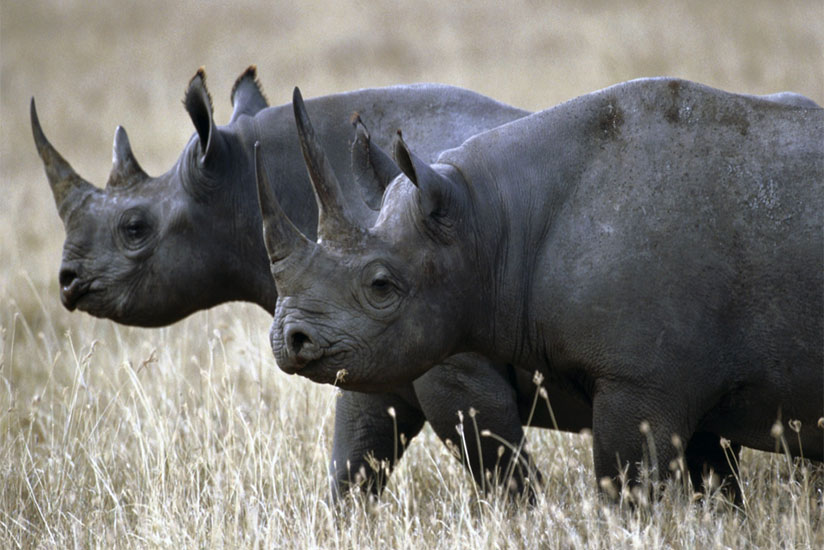Plans to re-introduce black rhinoceros in Akagera National Park is gaining momentum, an official said. The deal to bring in the rhinos is part of conservation and tourism efforts by Rwanda Development Board (RDB) and African Parks, the firm that runs Akagera National Park, with support from the Dutch government, which last year pledged to contribute Euro 200,000 to the project.


Plans to re-introduce black rhinoceros in Akagera National Park is gaining momentum, an official said.
The deal to bring in the rhinos is part of conservation and tourism efforts by Rwanda Development Board (RDB) and African Parks, the firm that runs Akagera National Park, with support from the Dutch government, which last year pledged to contribute Euro 200,000 to the project.
Robert Kayinamura, first counsellor at the Rwandan embassy in The Netherlands, told The New Times that the plan is to get 20 rhinos (10 males and 10 females) at Thaba Tholo, a game farm situated in the Limpopo Province of South Africa, in February.
He said: "They will then be kept in quarantine in South Africa for a month and moved in two batches of 10 animals each within a week in early or mid March. African Parks is meeting with Conservation Solutions and the people of Thaba Tholo next week [this week] to shore things up.”
Conservation Solutions is a heritage preservation firm providing conservation services to museums, public agencies and private owners.
According to Kayinamura, the Government has been asked to provide South African authorities with the CITES import permit so as to apply for the export permit in addition to the requisite veterinary protocols.
Sarah Hall, the tourism and marketing manager at Akagera National Park, said no dates have been fixed regarding when the rhinos will arrive in the country but acknowledged that preparations have been ongoing.
Hall said a boma to receive the animals is already complete. The animals will be held in the boma for around 48 hours, Kayinamura said, so that they settle down before being released.
"The plan is to get all 20 in as soon as possible to avoid intraspecific fighting which black rhinos are notorious for,” he said.
Black rhinos last thrived at Akagera National Park in the 1960s to 1970s with a population of 50 animals, but later almost entirely disappeared due to wide-scale poaching in the 1980s.
Akagera, a savannah park, is one of the largest protected wetland in Central Africa and Rwanda’s last refuge for savannah species such as elephants, buffaloes, zebras, and antelopes.
Since 2010, African Parks and RDB agreed to jointly manage the park – for an initial term of 20 years, with an option of renewing for a further 20 years – through the formation of Akagera Management Company (AMC).
The goal of the public-private partnership includes restoring, developing and managing the park as a functioning savannah ecosystem through biodiversity rehabilitation, sound conservation practices and tourism development.
Last month, Hall said the park has become "a successful conservation story.”
The number of visitors has more than doubled since African Parks, a non-profit conservation organisation managing 10 national parks and protected areas in seven African countries, took charge in 2010.
The park had 15,000 visitors in 2010 and earned around $200,000 in park fees. In 2015, visitors reached 32,000 fetching $1.2 million, a six-fold increase.
editorial@newtimes.co.rw


